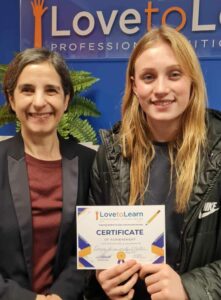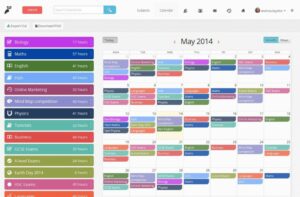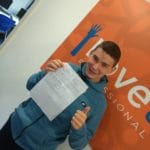Top GCSE Revision Tips
How to Make Your GCSE Revision Awesome!

Effective study skills can often make good students into great students. Here are four great study habits to help your GCSE student get the most out of their learning potential.
- Study Planner- students will know the topics they need to give special attention to. A long term plan of the year ahead helps to avoid last minute cramming before exams.
- Study Schedule- regular study sessions on a timetable will make life easier as it becomes part of the daily routine.
- Study Time- designate a ‘communication blackout hour’ , no phones, messaging, gaming or TV.
- Study Space- create a study area away from distractions, ideally a quiet, well lit area, with materials to hand.
Understanding Your GCSE Exams
It is important to know what you are preparing for! For GCSE revision make sure you know; how many papers you will be taking in each subject, what topics will come up in each paper and which books to revise, for English Literature, for each exam. It is also helpful to know which exam board the school is using (it may vary between subjects) as it is helpful to be revising from the right past papers.
Make a Revision Programme

Make a plan to avoid the last minute rush! You don’t want to cram it all into the last minute. The best way to learn is to give yourself enough time to prepare for each subject. So, say you are taking five exams, you might schedule 10 hours of revision for each subject, so you need to find 50 hours worth of revision from somewhere! If you revise 2 hours every night that is achievable in a month. Some exams will need more revision than others, so it is important to plan accordingly for each one. You might have birthdays or other events that take up time, so make sure important dates are on your calendar and work round them. You also don’t want to be starting too early, although if you do, you can always plan to go over things again nearer the time.
Only Do Effective and Efficient Revision

Don’t over do it! Revision is hard and it is easy to get distracted. I found 2 hour blocks were the best with a short tea break. If you revise for long periods you tend to lose focus and time waste. Give yourself a reward at the end to look forward to.
Don’t just read your notes or the revision book. Make notes, revision cards are great, and sumarise what you need to know. With some subjects, such as History or Geography, you may be able to reduce your notes to a couple of pages of A4 paper. Other subject like languages you may need to produce flash cards and posters. I would always try to get my answers down to a single MNEMONIC (e.g. Richard Of York Game Battle In Vain for the colours of the rainbow). This meant I only needed to remember the Mnemonic and not all the causes of the First World War (Militarism, Imperialism, Alliances, Nationalism e.g. Meat Is Always Nice) or whatever the topic is.
When you have produced your notes, mnemonics or posters or whatever, you will then be able to use them for reminders and last minute revision nearer to the exam. This gives your brain the best chance to remember what you are revising as the information is repeated in several different ways.
Set Up a Dedicated Learning Environment
An important part of revision is having a dedicated place to study. This will need to be away from electronic distractions if possible! Leave the phone downstairs, turn the play station off, open the books and make some notes. Although the internet is amazingly useful for revision purposes, it is also amazingly distracting. I would suggest only allowing yourself a limited time to use the internet to revise, and then make sure you write it all down. It is too easy to find yourself watching TikTok or playing a PC game otherwise.
Use the Best Revision Resources
There are lots of excellent revision resources available on the internet for free now. I would also recommend revision work books which you need to fill in (writing the answers in full is what you will do in the exam). For subjects like maths or languages, these may be the best way to make sure you have sharpened your skills in all the areas needed. Good revision guides are also helpful for specific books that you need to know for English Literature. Revision books may also be useful if you have gaps in your own notes that you need to fill in.
Last But Not Least!
Eat well, get fresh air and sleep well. You brain is the organ that uses the most energy in your body. Energy comes from; eating good food, breathing plenty of oxygen and then resting, our brains need to recover. Don’t stop your sport/dance/exercise programme completely, even if you have to cut down, do try to keep these activities going. Make sure you get regular nutritious food (otherwise your stomach will be distracting you anyway, without you knowing), drink plenty of water and cut out the late night TikTok/Playstation/TV action!





